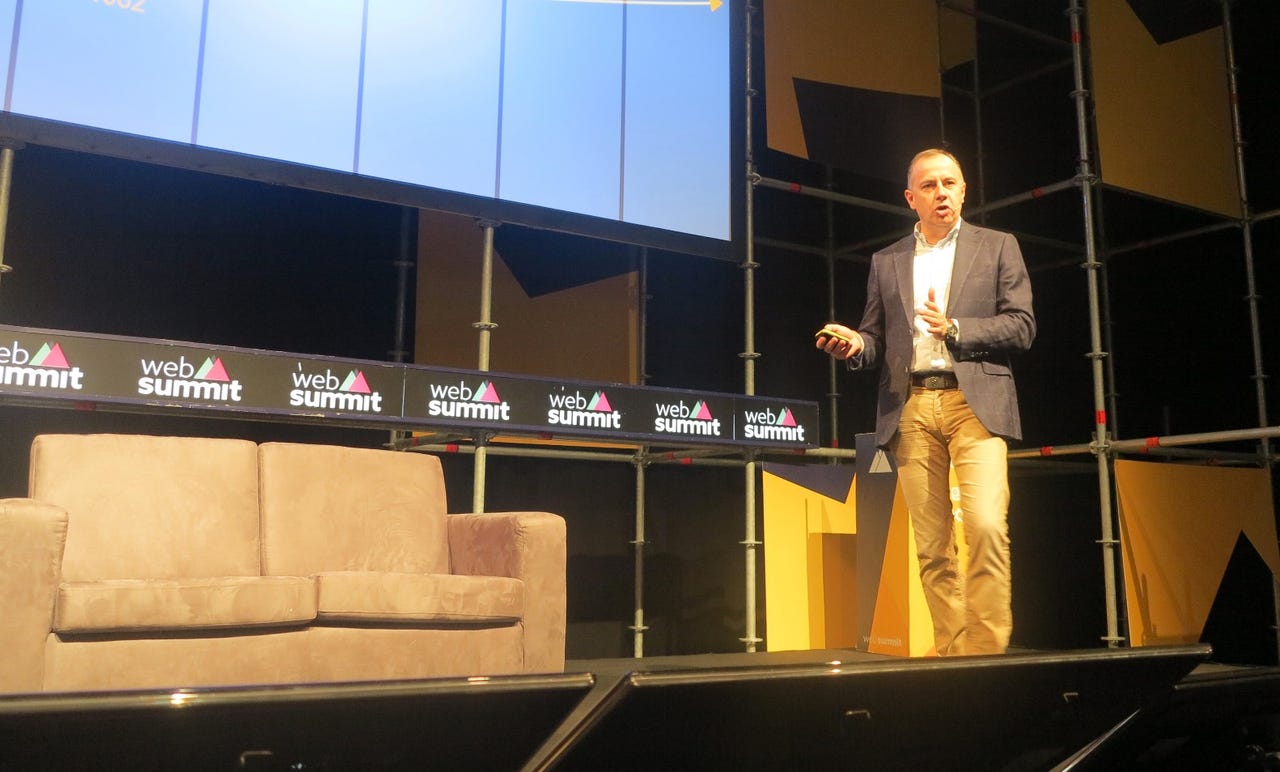Future enterprise companies will be run by robots

LISBON, PORTUGAL: Artificial intelligence (AI) will one day take on decision making and planning, freeing up enterprise employees for more creative roles.
That's according to Martin Hofmann, chief information officer at Volkswagen. Speaking at the Web Summit 2016 technology conference in Lisbon, Portugal on Tuesday, the executive said that the "robotic enterprise" is closer than we think -- with some roles already well on the way to being ran almost exclusively by machine learning (ML), AI and algorithms.
The German automaker already utilizes AI in business. Volkswagen has a total of three centers and research labs dedicated to researching AI applications and "taking AI into a completely different environment," according to the CIO. Each of these centers is working not only in the creation of connected car solutions, but also in developing AI systems for speeding up corporate processes -- all of which eventually becomes public domain.
Hofmann says there are five main "stages" Volkswagen uses to define the application of AI technology in the enterprise market. These stages, inspired by the control chart created by the Society of Automotive Engineers to define the differences between autonomous and self-driving cars, are laid out below:
- Manual: All business decisions are made by humans.
- Assisted: AI offers recommendations based on business data analytics and algorithms, but human operators make the call.
- Semi-automated: Artificial intelligence makes the decisions, but human operators are needed to confirm before any changes are made.
- Highly-automated: Routine tasks are fully made by AI systems.
- Fully automated: All business decisions are made by artificial intelligence and humans have no say.
While no company can yet claim to have reached levels four or five, the executive believes that one day they can be achieved through the use of deep neural networking, machine learning and enterprise bots.
Analytics and monitoring bots will be used for pattern recognition in business events and situations and will also have a place in discovering trends through social media and both macro and micro economical situations.
By using algorithms and AI, these bots will act in roles including virtual sales planners and as analysts able to give market share predictions for new products.
In addition, Hoffman says that AI systems will also be used for corporate planning, not only as a measurer of predictions for business, but as a scenario planned in real-time which can be used for applications including daily price updates globally based on demand.
Volkswagen has already utilized ML to predict future sales performance, depending on release date, vehicle type, area, and accessories. The CIO says the use of such technology has so far been a "stunning, surprising success," with machine-based sales predictions reaching accuracy levels of up to 90 percent -- whereas human predictors can only manage an average of 60 percent.
It may also be that one day, these bots will be smart enough to automatically approve financial decisions based on cost control.
Finally, Hoffman says that bots will also be used in decision making and execution. These "Mr. Know-it-all" bots will be used in team management, scheduling, time planning and the automatic management of corporate documents.
Do these future applications mean that robots will be taking over all of our jobs? Not at all, Hoffman says. Rather, by using AI to complete more mundane tasks with little or no supervision, staff will be available to work in more creative fields and academic roles.
The executive believes that by 2025, the enterprise company of the future will use AI in the same way production lines today can be considered "robotic."
"We will need to train people in higher and more creative things," Hoffman says. "I also believe humans should never get always out of the game -- we should be the final instance to make the final decision, not an algorithm."
Disclaimer: Web Summit 2016 sponsored the trip to Lisbon, Portugal.
